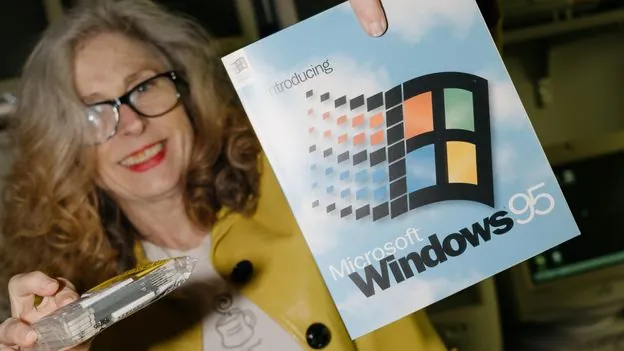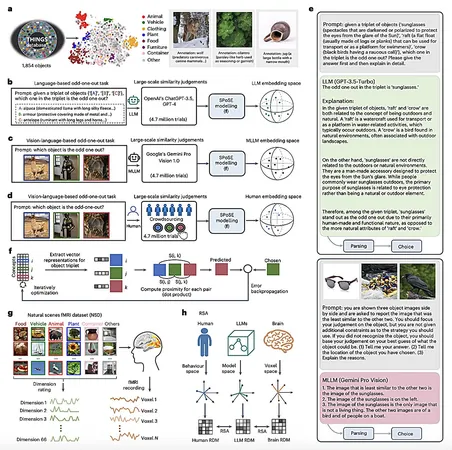
Stuck in the Digital Stone Age: Meet the People Still Using Ancient Windows Computers
2025-05-18
Author: Rajesh
CTRL+ALT+DEL: A Glimpse into the Past
As technology races ahead, a peculiar number of people find themselves shackled to decades-old software and devices. Venture into the bizarre realm of obsolete Windows machines, where the past refuses to die.
A Familiar Glitch
Earlier this year, I boarded an elevator in a bustling New York City hospital, my curiosity piqued by a screen displaying an error message from Windows XP—an operating system released nearly 25 years ago. This outdated OS stood in stark contrast to the shiny, high-tech environment surrounding it, offering a glimpse into the astonishingly slow march of technology.
Microsoft: From Dominance to Obsolescence
This year marks an impressive 50 years for Microsoft, a titan that once dominated the tech landscape. Although the company is now at the forefront of AI innovation, some argue that its most significant legacy is the enduring impact of its earlier software. Many still rely on outdated Windows systems, which continue to function quietly, gathering dust long after their prime.
The Infrastructure Paradox
"In a way, Windows is the ultimate infrastructure. It's why Bill Gates amassed such wealth," notes Lee Vinsel, an associate professor at Virginia Tech who examines the maintenance of ancient technology. The extensive integration of Microsoft's systems into essential services illuminates their remarkable success in the tech world.
Ghosts of Windows Past in Everyday Life
Even diehard Apple users frequently interact with legacy Windows systems. ATMs, for example, still operate on older versions like Windows XP or even Windows NT. Elvis Montiero, an ATM technician from Newark, New Jersey, observes that the high costs of upgrading these machines often keep them tethered to these ancient systems. "These machines are reliable and crucial for banking infrastructure," he explains.
Old Tech in New Places
A recent controversy in Germany highlighted the lingering presence of outdated operating systems. Deutsche Bahn sought an IT systems administrator to maintain train display systems, requiring expertise in Windows 3.11 and MS-DOS, setups that are outdated by decades. "Our trains can serve over 30 years, so we keep systems that prove stable and safe," a spokesperson said.
Across the ocean, San Francisco's Muni Metro light railway cannot start its day without a floppy disk to boot its operating software, emphasizing thesometimes ludicrous lengths to which organizations cling to old tech.
A Struggle for Performance
In the world of high-end printing, John Watts in San Diego operates massive LightJet printers that run on Windows 2000. These printers, while capable of producing stunning images, require machines that are now relics. "Upgrading would cost an arm and a leg, so we endure the slow, clunky systems we have," Watts confesses.
Lagging Behind Modern Times
For psychiatrist Eric Zabriskie, his job at the US Department of Veterans Affairs often turned into a battle against time, as it sometimes took 15 minutes to log into his antiquated computer. "You hold on for dear life as every action takes an eternity," he lamented.
Deferred maintenance compounds the issue. Companies tend to prioritize new features over improving existing infrastructure, causing dependence on outdated technology to grow unchecked. In fact, many VA medical facilities still rely on a suite of tools from 1997 that sits atop a foundation built on MS-DOS from 1985.
A Labor of Love in Vintage Tech
Sometimes, old technology is cherished instead of discarded. Dene Grigar, director of the Electronic Literature Lab at Washington State University, cultivates a collection of vintage computers dating back to 1977, dedicated to preserving early digital art and literature.
With innovations like choose-your-own-adventure storytelling formats changing the landscape of literature, Grigar insists on their importance. "Emulators can make it accessible but often lose the essence of the original experience," she explains.
The Microsoft Advantage
Unlike Apple, which tightly controls its ecosystem, Microsoft capitalized on allowing businesses to leverage existing hardware while pursuing software licenses—an effective strategy that results in many users feeling stuck with tiresome Windows machines.
In a fast-paced world, the stubborn persistence of these ancient systems offers a fascinating, if frustrating, look into how far we've come—and how far we have yet to go.



 Brasil (PT)
Brasil (PT)
 Canada (EN)
Canada (EN)
 Chile (ES)
Chile (ES)
 Česko (CS)
Česko (CS)
 대한민국 (KO)
대한민국 (KO)
 España (ES)
España (ES)
 France (FR)
France (FR)
 Hong Kong (EN)
Hong Kong (EN)
 Italia (IT)
Italia (IT)
 日本 (JA)
日本 (JA)
 Magyarország (HU)
Magyarország (HU)
 Norge (NO)
Norge (NO)
 Polska (PL)
Polska (PL)
 Schweiz (DE)
Schweiz (DE)
 Singapore (EN)
Singapore (EN)
 Sverige (SV)
Sverige (SV)
 Suomi (FI)
Suomi (FI)
 Türkiye (TR)
Türkiye (TR)
 الإمارات العربية المتحدة (AR)
الإمارات العربية المتحدة (AR)